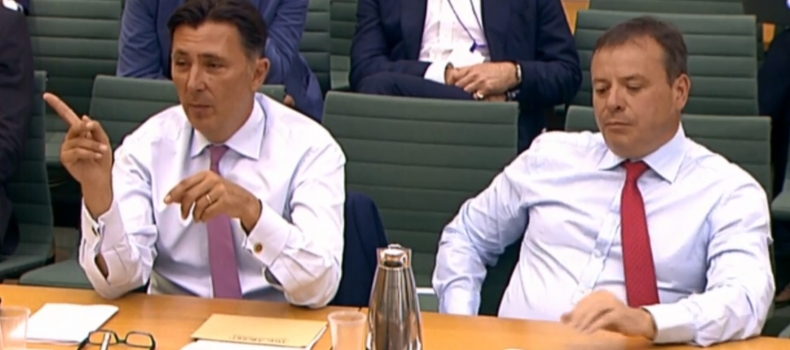 Following the revelations about the National Security Agency’s surveillance practices, Index on Censorship produced a comprehensive report detailing the EU and member states’ current positions on key digital rights issues. Index’s Digital Policy Advisor Brian Pellot examines the state of digital governance in Europe, and argues that the EU needs to take a more coherent approach to promoting digital freedom.
Following the revelations about the National Security Agency’s surveillance practices, Index on Censorship produced a comprehensive report detailing the EU and member states’ current positions on key digital rights issues. Index’s Digital Policy Advisor Brian Pellot examines the state of digital governance in Europe, and argues that the EU needs to take a more coherent approach to promoting digital freedom.
Recent revelations from the US National Security Agency have shown that our fundamental rights to privacy and freedom of expression are being compromised on a global scale. This is true despite false assurances to the contrary and the US government’s consistent rhetoric celebrating digital freedom. Unfortunately, the US is far from alone in peddling such hypocrisy. The EU as a whole and its individual member states also promote digital freedom in press conferences yet often undermine positive words with contradictory policies at home and abroad.
In a new report, Index on Censorship outlines where the EU and member states are situated in some of today’s most pressing digital debates.
The EU has been slow to prioritise digital rights, often placing more emphasis on e-commerce and competitiveness. In recent years, it has started to develop a range of ad hoc digital policies to address cybersecurity, data protection, intellectual property and corporate social responsibility within the EU and digital freedom abroad. But a coherent overarching strategy and set of principles to promote and defend freedom of expression and human rights online are still lacking.
The Commissioner for internet-related policies Neelie Kroes and Dutch MEP Marietje Schaake have put forward ideas for more comprehensive strategies to address digital freedom, but Kroes’s “Compact on the Internet” never turned into a standalone initiative and Schaake’s European Parliament report, which addresses some of the greatest threats to digital freedom, is limited to foreign policy.
The EU’s external efforts addressing online freedom of expression — most notably the No-Disconnect Strategy, which supports activists and ensures network resilience during political crises, and the forthcoming freedom of expression guidelines — should help the EU to define its key priorities on digital freedom and increase its effectiveness in promoting these principles abroad. But a more strategic approach that joins internal and external considerations is still needed if the EU and member states are to play positive roles in setting the global agenda and influencing decisions on digital freedom.
At the member state level, Sweden, the UK and the Netherlands are some of the strongest proponents of digital freedom abroad despite some restrictive policies at home. The Swedish government focuses on freedom of expression in its cyber security strategy and calls for a free and open internet, but its own sweeping surveillance laws chill freedom of expression in the country. UK Foreign Secretary William Hague has endorsed universal internet access, openness and freedom online, but new plans for surveillance laws were announced in May and the UK has seen a growing number of social media prosecutions in recent years for “offensive” speech. The Netherlands recently passed legislation safeguarding net neutrality, but a push in Dutch parliament to grant police greater surveillance powers shows that not all domestic developments have been positive for digital freedom.
In the on-going global governance debate over who should control the internet, the EU has endorsed a “multistakeholder” bottom-up approach in opposition to the top-down government regulation model being pushed by the likes of China, Russia and Iran. For the EU to effectively promote this policy and other positive digital freedom initiatives at the international level, it needs to develop a unified strategy that respects fundamental human rights, including freedom of expression and privacy, both internally and externally.
Several international processes and summits will converge and culminate over the next two years, resulting in crucial decisions about the internet’s future and freedom of expression online. The EU has proven its ability to lead offline. It now needs to address the most crucial digital challenges of our time and lead the online fight for digital freedom.
Brian Pellot is digital policy adviser at Index on Censorship. This post first appeared on Index on Censorship’s website on 27 June 2013 and was reposted here with permission and thanks. The post gives the views of the author, and does not represent the position of the LSE Media Policy Project blog, nor of the London School of Economics.





